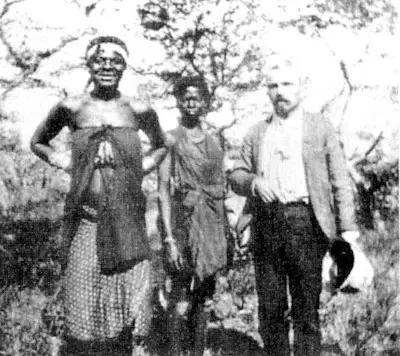The phrase ‘what a palaver’ means ‘what a lot of fuss’. It is frequently used in contexts where the fuss is long-winded and out of proportion to whatever trifle caused it, leading to an amended meaning, listed in the OED as ‘a fuss, a commotion; a tedious or unnecessarily drawn-out process, a rigmarole’.
What a palaver
What's the meaning of the phrase 'What a palaver'?
What's the origin of the phrase 'What a palaver'?
Naturally, to explain the expression ‘what a palaver’ we need to know what a palaver is. Looking the word up in a dictionary seems the obvious way to go. However that doesn’t lead us to the answer as easily as we might expect.
Palaver took something of a roundabout route to get to the unecessarily drawn-out fuss’ meaning we now use. First stop, Portugal…
In 13th century Portuguese the word palavra meant ‘speech, talk’.
When Portuguese sailors began establishing trading stations in West Africa in the 16th century the local population began to use palavra, but with a slightly altered meaning. Given the suspicions of colonial ambitions of the Portuguese and the beginnings of the slave trade, it isn’t surprising that many of the conversations between the Portuguese and the Africans were acromonious. The word ‘palavra’ began to be used to mean ‘dispute, quarrel, or misunderstanding; a matter for arbitration’.
British sailors trading with West Africa picked up the word palavra and adopted it into English. The ‘dispute’ meaning is recorded, with the altered ‘palaver’ spelling, by the British academic Sir Ronald Aylmer Fisher in Extracts from the Records of African Companies, 1924. Fisher reprinted a piece which he dated as being from 1707:
Has had a pallaver w[ith] y[e] King of Barra who stopt y[e] Water & boats coming to ye island ye Pallaver cost 100 bars.
Palaver was recorded in many publications on the 18th and 19th century, in West Africa and elsewhere, with several meanings:
- To cajole, flatter, or wheedle – Britain, 1733
- A talk, a discussion, a dialogue between African tribespeople and traders or travellers – West Africa, 1735. Note that this is the meaning is the same as the verb ‘parley’.
- Unnecessary or idle talk; chatter – Britain, 1748
- Trouble, difficulty; bother, ‘hassle’ – West Africa, 1899
Over time the various ‘talk’ meanings have been entirely superseded by a ‘unecessary fuss’ meaning. This sense was recorded in the US magazine Catholic World June 1878:
A thousand hermits have lived before Thoreau, and made no palaver over their social discomforts.
The history of “What a palaver” in printed materials
Trend of what a palaver in printed material over time
Related phrases and meanings
Browse more Phrases
About the Author

Phrases & Meanings
A-Z
A B C D E F G H I J K L M N O P Q R S T UV W XYZ
Categories
American Animals Australian Bible Body Colour Conflict Death Devil Dogs Emotions Euphemism Family Fashion Food French Horses ‘Jack’ Luck Money Military Music Names Nature Nautical Numbers Politics Religion Shakespeare Stupidity Entertainment Weather Women Work
How did we do?
Have you spotted something that needs updated on this page? We review all feedback we receive to ensure that we provide the most accurate and up to date information on phrases.
